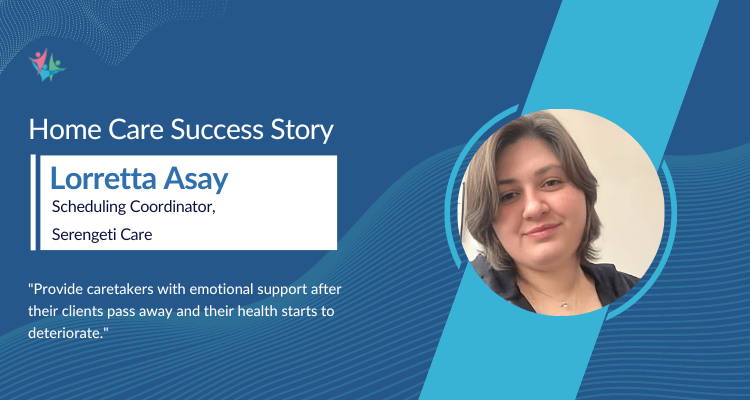When it comes to healing, comfort and familiarity often play a vital role, and home care emerges as a beacon of support. It allows individuals to get the care they need while remaining in their homes.
This fosters a sense of security and well-being and enables personalized attention tailored to their needs. Besides, home care can significantly impact recovery times and overall health.
It provides emotional support and reduces feelings of isolation and loneliness that care recipients may experience. Home care also allows for greater independence, as the seniors can maintain their daily routines and lifestyle.
Further, home care is a cost-effective option as it eliminates the need for hospital stays, which can be expensive. It also reduces travel expenses for regular check-ups or treatments.
Lastly, home care can provide peace of mind for family members, knowing that their loved ones are receiving quality care in their homes.
Read on to know a story that exemplifies the transformative power of home care, showcasing how it empowered care recipients to live fuller, better lives.
We interviewed a stellar home care provider to bring her perspective on achieving success in this field.
To shed some light on the same, we interviewed a home care industry expert to bring her perspective on caring for the elderly.

Who Did We Interview?
Lorretta Asay is the Scheduling Coordinator of Serengeti Care which supports people of all ages to live independent lives in the comfort of their homes. The staff assists with care needs like personal care, activities of daily living, companionship, housekeeping, meal preparation, and much more.
Serengeti Care provides custom home care services tailored to fit the elderly’s needs, whether for a few hours or around the clock.
Let’s now delve into what she has to say about the home care industry:
What prompted me to be a home care provider was the personal experience of caring for my mom during the end of her life.
I began to take care of her when I was 19 years old, and she passed away shortly before I turned 21 years old. I had always loved the medical field and helping others, but starting with such a personal experience made this field very personal to me.
My biggest business strength is that I’m very detail-oriented when caring for people.
I think it’s important to know them down to the little details to make it a personal experience for each client. Also, my ability to connect with the clients has made me a better caregiver and admin.
The biggest business hurdle I have had to overcome as a caregiver was relying on the technology currently available in the more rural areas.
When it comes to being an admin, I think the biggest hurdle has been getting the right program to enable caregivers to get their HCA certifications and maintaining personal relationships with the clients when you don’t interact with them daily, which I miss.
My office relies on a home care personal care app for caregivers and a web version for in-office staff. Payroll technology is used to keep up with OSHA regulations, pay stubs, sick pay, and W-2s.
The advice would be to ensure that the caretakers earn a livable wage and use reliable technology to make their documentation experience easier.
Provide caregivers with emotional support after the passing of their clients and when their health starts to deteriorate.
I have had clients that I cared for pass away & did not have much support to process that.
The ability to offer compassionate, detail-oriented care tailored to every client is the start of navigating a home care business. Overcoming technological hurdles in rural areas and fostering connections despite logistical challenges are the two ways to sprint toward success.
Technology plays a vital role, with dedicated apps streamlining communication and payroll. However, advocating for better wages for caretakers and exploring support systems for them through challenging times remains paramount.
Ultimately, it is about honoring the human connection at the heart of home care for both care recipients and providers.
Our users reported 95% customer satisfaction in 2023. Schedule a personal walkthrough to see CareSmartz360 in action.